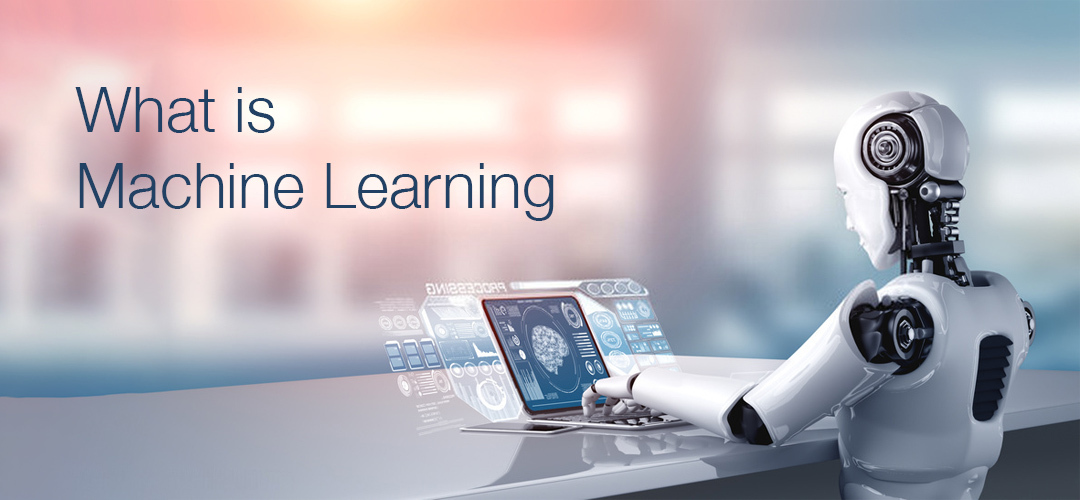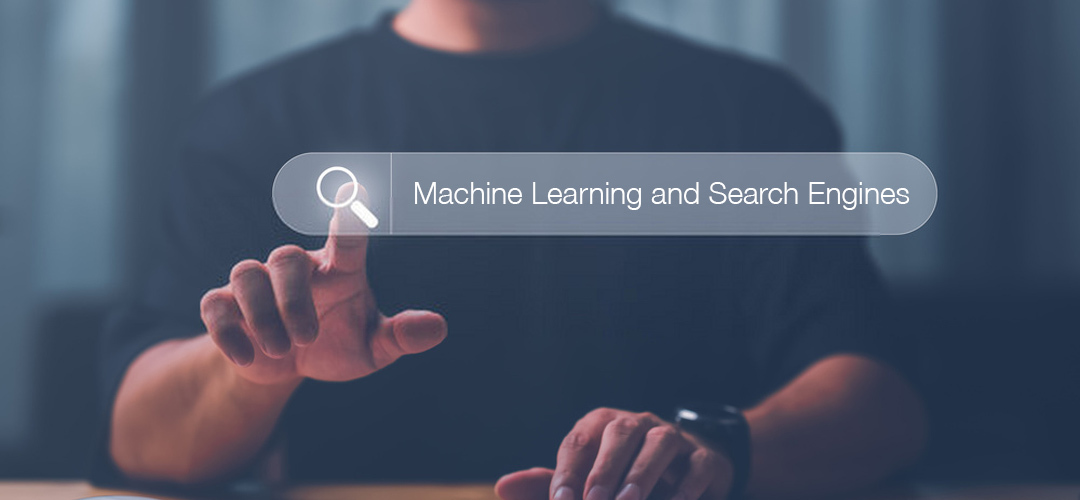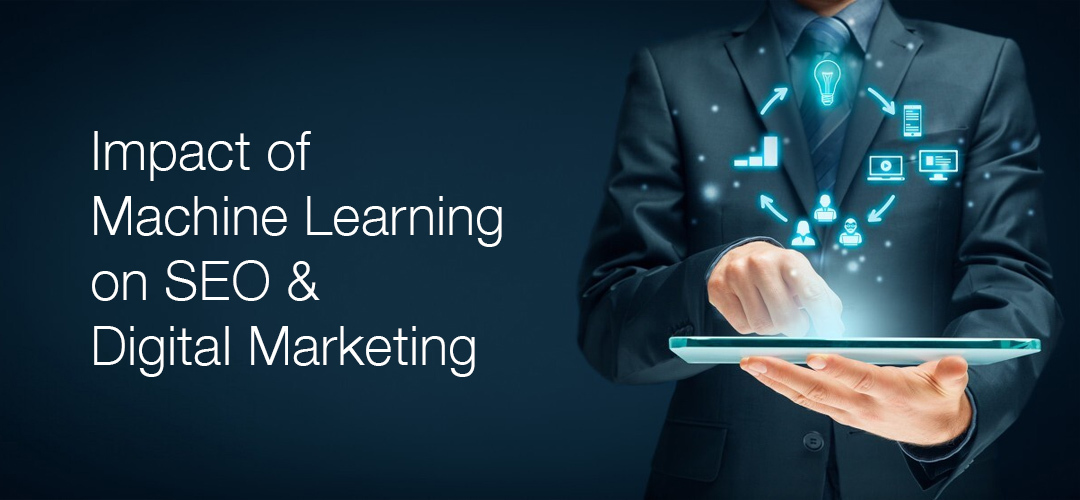08/19/2021
/
How Search Engines Use Machine Learning and Its Impact on SEO
Are you flurried to know how SERPs are arranged and what’s responsible for ataxic ranking on SERP? Let’s see the impact of Machine Learning in the working of search engines.
People who are into digital marketing know the role of SEO really well.
How:
 Before we establish a connection between SEO and MI, let’s see what machine learning is.
We know humans learn from their past experience and train machines to perform instructions. But what if humans train machines to learn from their past data to function at an improved speed? This is what we call Machine Learning, but we can’t limit machine learning to this only.
Technically, Machine Learning (ML) is a subset of Artificial Intelligence (AI) and includes algorithms that train computers to learn from past experiences. Machine learning enables computers to conclude without any explicit programming.
The definition by Stanford says,
“Machine learning is the science of getting computers to act without being explicitly programmed.”
Before we establish a connection between SEO and MI, let’s see what machine learning is.
We know humans learn from their past experience and train machines to perform instructions. But what if humans train machines to learn from their past data to function at an improved speed? This is what we call Machine Learning, but we can’t limit machine learning to this only.
Technically, Machine Learning (ML) is a subset of Artificial Intelligence (AI) and includes algorithms that train computers to learn from past experiences. Machine learning enables computers to conclude without any explicit programming.
The definition by Stanford says,
“Machine learning is the science of getting computers to act without being explicitly programmed.”
 The power of machine learning can be harnessed to improve the user search experience. Considering the role of machine learning in SEO, it allows Google to understand the nature and references and deliver more accurate results.
First, computers are taught to perform matchmaking tasks followed by proper training to prepare them to figure out the relationships between entities and involved data to deliver better results.
Succinctly, RankBrain
The power of machine learning can be harnessed to improve the user search experience. Considering the role of machine learning in SEO, it allows Google to understand the nature and references and deliver more accurate results.
First, computers are taught to perform matchmaking tasks followed by proper training to prepare them to figure out the relationships between entities and involved data to deliver better results.
Succinctly, RankBrain

- Do search algorithms work?
- Search engine crawl and index websites?
- user intent contributes to ranking on Search engines. And last but not least,
- Is Machine Learning transforming SEO?
What is Machine Learning?
 Before we establish a connection between SEO and MI, let’s see what machine learning is.
We know humans learn from their past experience and train machines to perform instructions. But what if humans train machines to learn from their past data to function at an improved speed? This is what we call Machine Learning, but we can’t limit machine learning to this only.
Technically, Machine Learning (ML) is a subset of Artificial Intelligence (AI) and includes algorithms that train computers to learn from past experiences. Machine learning enables computers to conclude without any explicit programming.
The definition by Stanford says,
“Machine learning is the science of getting computers to act without being explicitly programmed.”
Before we establish a connection between SEO and MI, let’s see what machine learning is.
We know humans learn from their past experience and train machines to perform instructions. But what if humans train machines to learn from their past data to function at an improved speed? This is what we call Machine Learning, but we can’t limit machine learning to this only.
Technically, Machine Learning (ML) is a subset of Artificial Intelligence (AI) and includes algorithms that train computers to learn from past experiences. Machine learning enables computers to conclude without any explicit programming.
The definition by Stanford says,
“Machine learning is the science of getting computers to act without being explicitly programmed.”
Use Case for Machine Learning
Machine Learning is used by tech giants to demarcate their social media or website performance, the finance industry for fraud detection, and the health care sector to predict diagnostics, etc. It is used to predict customer journeys in eCommerce. For instance: Taxi giants like Ola and Uber identifies users booking pattern and prices they opt for. These giants utilize machine learning to come up with differential pricing in real-time based on different factors, like rush hour, weather conditions, availability of cars, demand, etc. ML also used predictive modeling to predict the high-low demand of cars, so that drivers can take care of the demand and prices will be adjusted accordingly. This is purely mathematical and drawn from previous conclusions. As seen above, the taxi giants run on the framework of machine learning to come to conclusions based on information without specific programming to lead the task.Notice the change brought in by ML
Consumers today want instant delivery of information that they seek. It could be the reason why tech giants like Amazon, Apple, Facebook and Google prefer machine learning to keep going and get speed, precision and accuracy. The tech giants are making heavy investments in it. Even Google is offering a free course on it and is using the open-source machine learning framework TensorFlow. Being SEO professionals, we should follow the same strategy to maintain massive data sets. Machines can hold over trillions of gigabytes, while the human brain can hold on millions of the same. It’s possibly the present and future, and it should be learned.Machine Learning and Search Engines
 The power of machine learning can be harnessed to improve the user search experience. Considering the role of machine learning in SEO, it allows Google to understand the nature and references and deliver more accurate results.
First, computers are taught to perform matchmaking tasks followed by proper training to prepare them to figure out the relationships between entities and involved data to deliver better results.
Succinctly, RankBrain
The power of machine learning can be harnessed to improve the user search experience. Considering the role of machine learning in SEO, it allows Google to understand the nature and references and deliver more accurate results.
First, computers are taught to perform matchmaking tasks followed by proper training to prepare them to figure out the relationships between entities and involved data to deliver better results.
Succinctly, RankBrain
- Discover relationships between different entities.
- Understand the analogy and difference between words.
- Manage algorithms related to it for better results.
Impact of Machine Learning on SEO and Digital Marketing

Pattern Detection
Duplicate content or spam content can diminish the quality of results as the user may not like seeing the same results one after another. Here comes the role of machine learning in pattern detection.- By implementing pattern detection, search engines can identify low-quality content that has:
- High and regular occurrence of keywords to make it spam.
- Using a lot of synonyms or stop words.
- Several outbound links to unrelated pages
New Signals Identification
Google Powered Machine Learning Algorithm, ‘Rank Brain’ helps the search engine identify patterns and new possible ranking signals. All this was done manually before Rankbrain. Though the algorithm is not strictly machine-run as human engineers are working on it, but in its background, it runs tests and sees the effect of user interaction on users. RankBrain is capable of solving issues that were prominent in the past. Earlier, Google was unaware of how to handle search terms that were never searched earlier. Search engines empower technology by teaching them how to run predictions and sort data on their own to reduce manual labor and lead human-centered projects with innovation.Its impact can’t be Immense
However, machine learning is affecting the way the search engine works and ranks a website. Machine learning may adjust the weight of various ranking signals, but it’s still handled manually by real people. However, Google uses technology to improve the end-user experience without automating the entire process. But unfortunately, its impact is not as high as expected. There are various other points where search engines use machine learning to enhance their digital marketing results. Other applications are Natural Language Processing, Query Based Custom Signals, Image Search, Ad Quality & Targeting Improvements, Synonyms Identification, Query Clarification, etc.Recent Posts
Monika Narriya/0 Comments
Why are ERP solutions important in the education sector?
Monika Narriya/0 Comments
Which is the best ERP solution provider company?
Monika Narriya/0 Comments
How do we select the right ERP solution for our businesses?
Sumit Kumar/0 Comments
9 Most In-Demand Programming Languages for 2024
Sumit Kumar/0 Comments
Best Time to Post on Social Media – 2024 Guide
Sumit Kumar/0 Comments
Why You Should Consider Semantic HTML for SEO
All Categories
- Bing
- Blockchain
- Blog
- Branding
- Case Study
- Content Marketing
- Conversion Rate Optimization
- Cryptocurrency
- Digital Currency
- Digital Marketing
- Email Marketing
- ERP Solutions
- Facebook Marketing
- Google Ads
- Google Updates
- Graphic Designing
- Hire Developers
- Image SEO
- Influencer Marketing
- IT
- Local SEO
- Machine Learning
- Mobile Application Development
- Pay Per Click
- Pinterest SEO
- Podcast Hosting
- React JS
- Reddit & Quora
- Search Engine Optimization
- SEO Copywriting
- Social Media Marketing
- Software
- Software Development
- Technology
- UX and UI
- Web Designs
- Web Hosting
- Website Development
- Website Redesigning
- YouTube SEO









One thought on “How Search Engines Use Machine Learning and Its Impact on SEO”
Greetings! Very helpful advice within this article!
It’s the little changes that will make the greatest changes.
Thanks a lot for sharing!